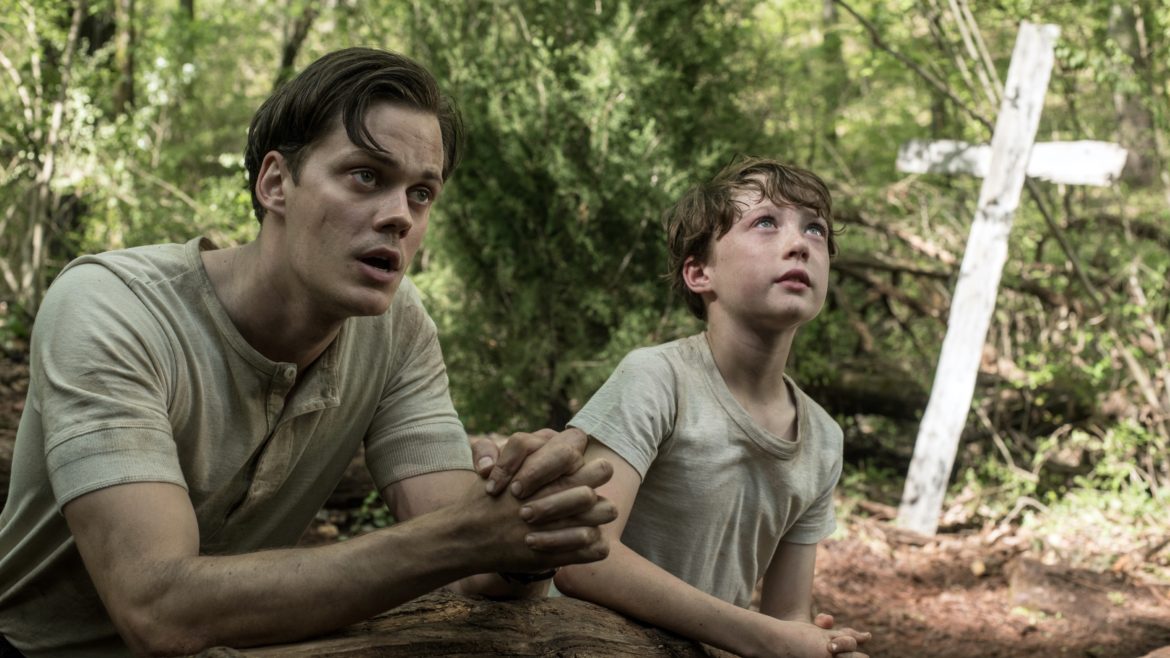Well, I’m sure glad to see this year in the rear-view mirror. But I admit movies saved me through all this. Granted, none of them were seen in movie theaters, but if a movie is good it will grab and shake you silly anywhere. Here are 10 that shook me.
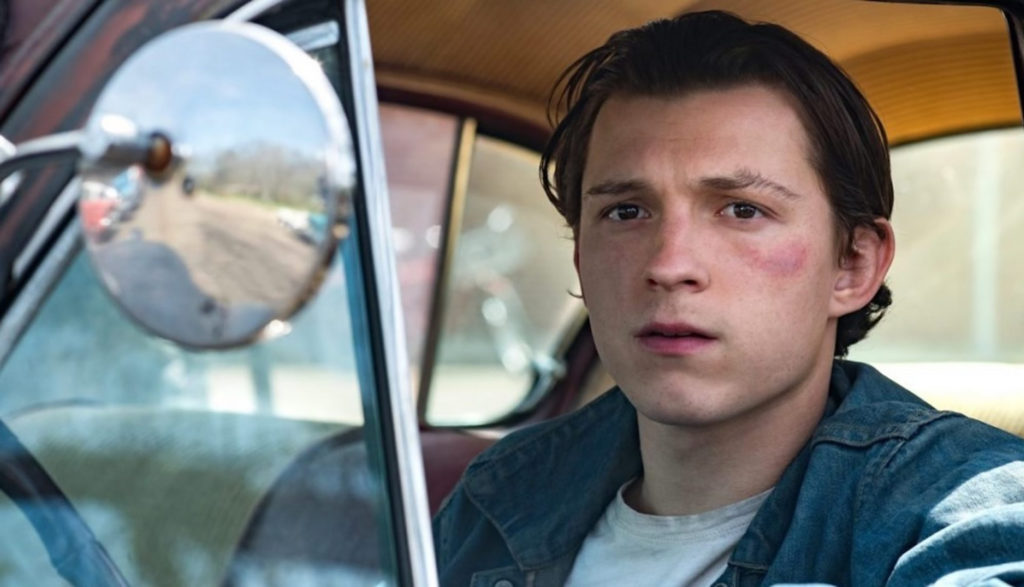
The Devil All the Time. A mesmerizing slice of Southern Gothic, based on the electrifying novel by Donald Ray Pollock (who supplies the voice-over) and directed with style to burn by Antonio Campos. Tom Holland is staggeringly good as a country boy scarred by his religious lunatic father (Bill Skarsgard) and haunted by his mother’s death. Orphaned, he goes to live with his backwoods grandmother, and his life interjects with sweet Leonora (Eliza Scanlen), an orphaned girl his grandmother has taken in. She enters into a disastrous affair with a randy, married preacher (Robert Pattison). There is also another religious loon (Harry Melling) who pours spiders over his head and a psychotic couple (Jason Clarke & Riley Keough) who pick up people hitchhiking and murder them. The stories weave together in surprising, unforgettable ways. One of those rare films that spins a creepy spell over the viewer- you watch in a state of dread and wonder.
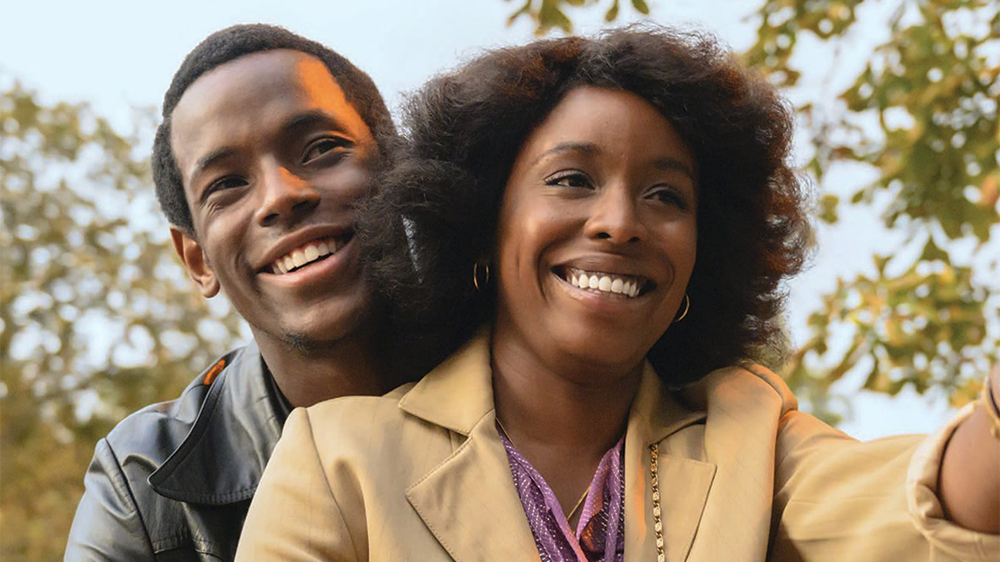
Lovers Rock. One of the films in director Steve McQueen’s Small Axe: Red, White & Blue series centers around a house party in the West Indian section of London in the 1980s.The observational moments are evocative and thrilling to watch. The women singing and cooking in the kitchen. the DJ spinning reggae tunes while the crowd rocks and slow-dances to the music. The flirtations; the fights; the flashy clothes. The preening males; the giggling girlfriends. It’s joyful, sexy, exhilarating. Cinematographer Shabier Kirchner glides around the house, and especially the dance floor, catching every ecstatic gyration with hypnotic grace. A spirited dance to “Kung Fu Fighting” becomes a call to arms. There are flashes of the outside world and the racism waiting there, but within these walls, tonight- everybody dances. A rapturous, beautiful film.
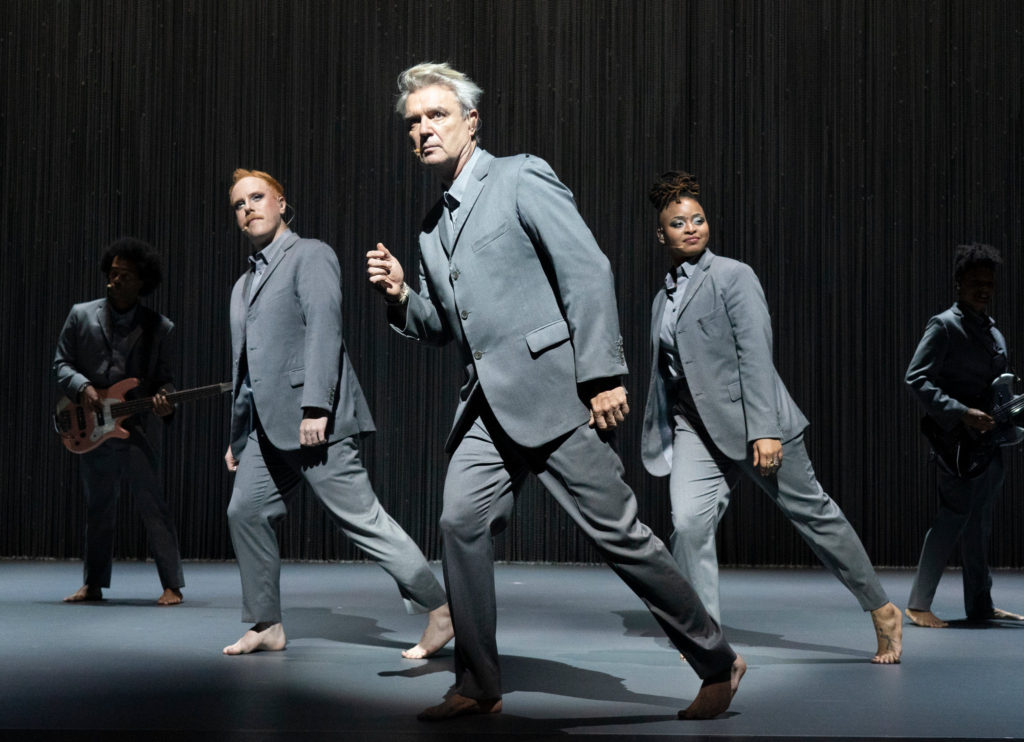
American Utopia. Spike Lee’s thrilling, brilliant transferal of David Byrne’s hit Broadway show to film captures the exuberance, joy and musical highs- and then some. Byrne and his incredible group of barefoot dancers and musicians captivate the stage for over an hour and a half in a seamless story accompanied with Byrne’s iconic songs levitating the audience up out their seats. What Lee does so well is to let cinematographer Ellen Kuras’ camera rove around- above; to the side; in front- capturing the innovative chorography and also the singular wonders of the performers. If ever there was a filmed experience so needed now this is it.
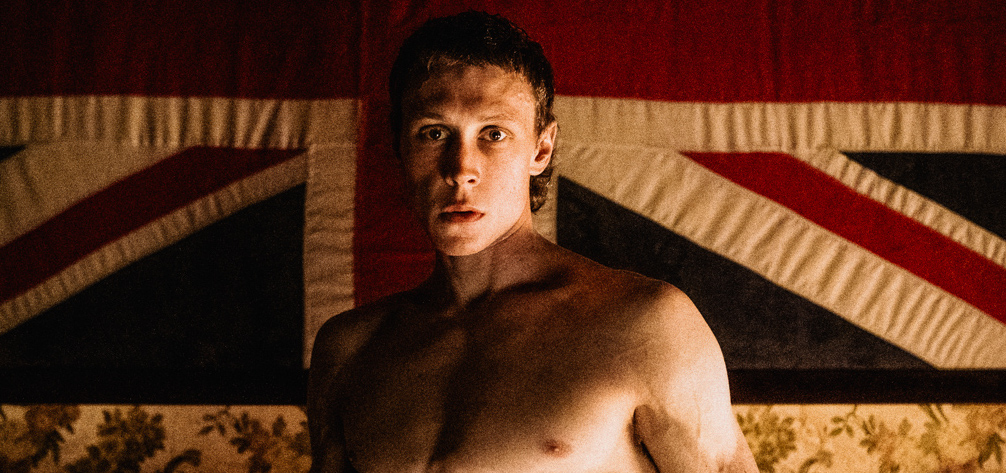
The True History of the Kelly Gang. There is a galvanizing, homoerotic, punk-rock energy coursing through director Justin Kurzel’s unorthodox retelling of the oft-told tale of mythic 19th century Australian bandit Ned Kelly (here played with fierce intensity by “1917” star George MacKay). Nicholas Hoult adds a chilly, sexual, spider-like quality as a malevolent Constable who had an unhealthy fascination with young Ned and then turns on him, using the law to unfairly hunt Kelly’s family down. And the lean-faced, intense George MacKay now joins the likes of Mick Jagger and Heath Ledger, who also portrayed the legendary Irish bad-boy. What’s fascinating about the film is the anarchic queer spirit and the bold stylistic choices director Kurzel infuses his movie with. It flies in the face of the usual hyper-macho posturing coursing through a story such as this. As the film careens savagely out-of-control, this barbaric outlaw tale begins to feel like a western on ‘shrooms.
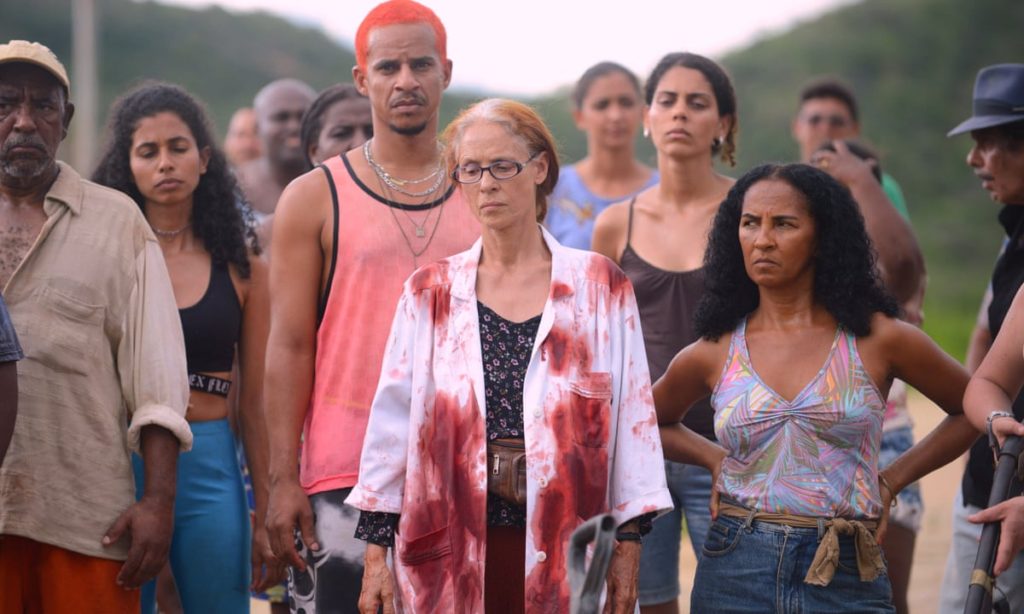
Bacurau. Set in a small remote village in Brazil, Teresa (Barbara Colen) returns to mourn the loss of her grandmother, also the town matriarch. Weird drones start appearing in the sky, strangers begin showing up, and any internet or cell service disappears. Before long the town is in full battle with a bunch of mercenaries (led by Udo Kier) who intend to pick off the townspeople one at a time. But they learn quickly you just don’t fuck with this community. Sonia Braga is scarily memorable as the town doctor. Filmed with great gritty style and dark humor by Juliana Dornelles & Kleber Mendonca Filho, this is a movie I love turning friends onto. It’s a bloody blast.

Why Don’t You Just Die? In this wildly inventive, incredibly kinetic cinematic blast, Russian director Kirill Sokolov serves up the most enjoyable, insane movie I saw all year. A young man (Aleksandr Kuznetsov) shows up wielding a hammer at the door of a volatile, corrupt cop (Vitaliy Khaev), and what transpires is a wild, deranged battle that smashes through walls, into bathrooms and through couches stuffed with stolen money. The movie just rockets so violently out of control you barely have time to catch your breath, but this amazing film will have you laughing and gasping at the same time.
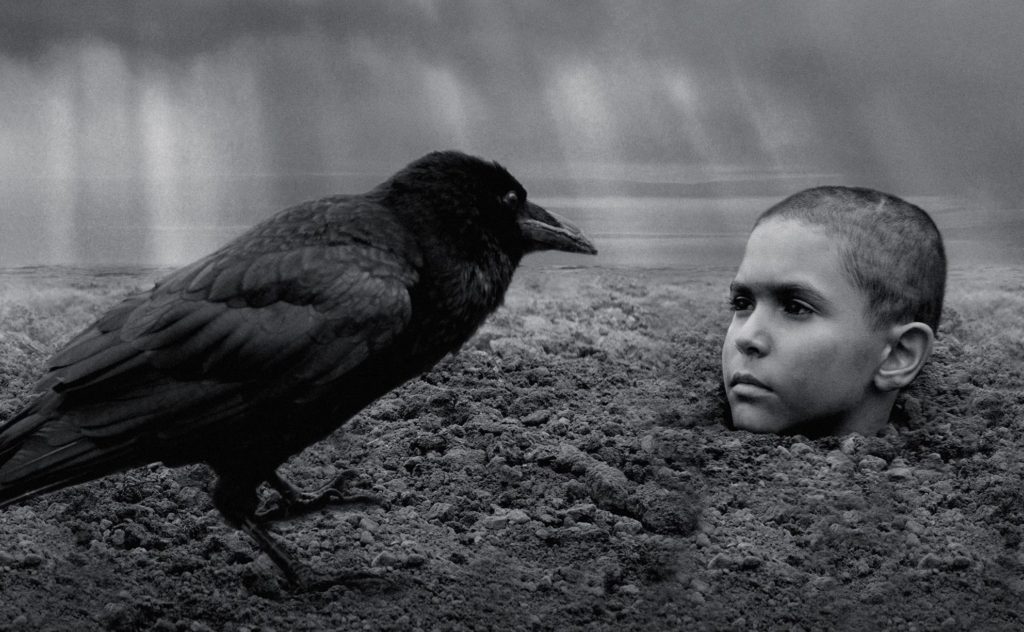
The Painted Bird. Director Vaclav Marhoul’s harrowing and beautiful adaptation of Jerzy Kosinski’s novel is a nearly 3-hour, black & white, Hieronymus Bosch-like hellscape. Petra Kotlar hauntingly plays the young boy Joska, sent to a rural village in Eastern Europe to live with his “aunt” by his Jewish parents during World War II. When the woman unexpectedly dies, the orphaned boy flees through the forest and roams from town to town, encountering rabid anti-Semitism from hateful, wildly superstitious villagers. Like a scary Grimm’s fairy tale Joska’s journey is filled with cruelty and terror. The black & white cinematography by Vladimir Smutny recalls the dark lyricism of The Night of the Hunter and the result is a film that is both gorgeous and grotesque at the same time.
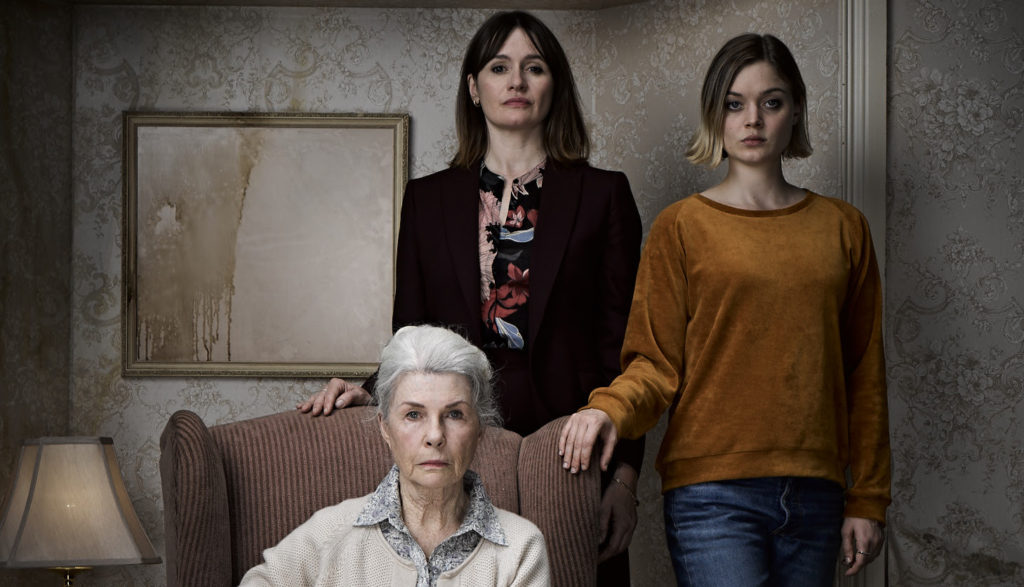
Relic. Director Natalie Erika James’ first feature-length film is the most terrifying, and surprisingly moving, film you’ll see this year. Emily Mortimer plays Kay, who drives from Melbourne with her older daughter Sam (Bella Heathcote) because a neighbor reports to the police that Kay’s elderly mother Edna (Robyn Nevin) hasn’t been seen in some time. They arrive at the house and Edna is nowhere to be found, which precipitates a police search in the nearby woods. But one morning Edna is suddenly there in the kitchen, making tea and seeming no worse for wear, except for a disturbing bruise on her chest. Trust me, the film builds with mounting unease. The creepy Alice in Wonderland shift during the last third of the film all help create a daringly original, scary and deeply unsettling movie.
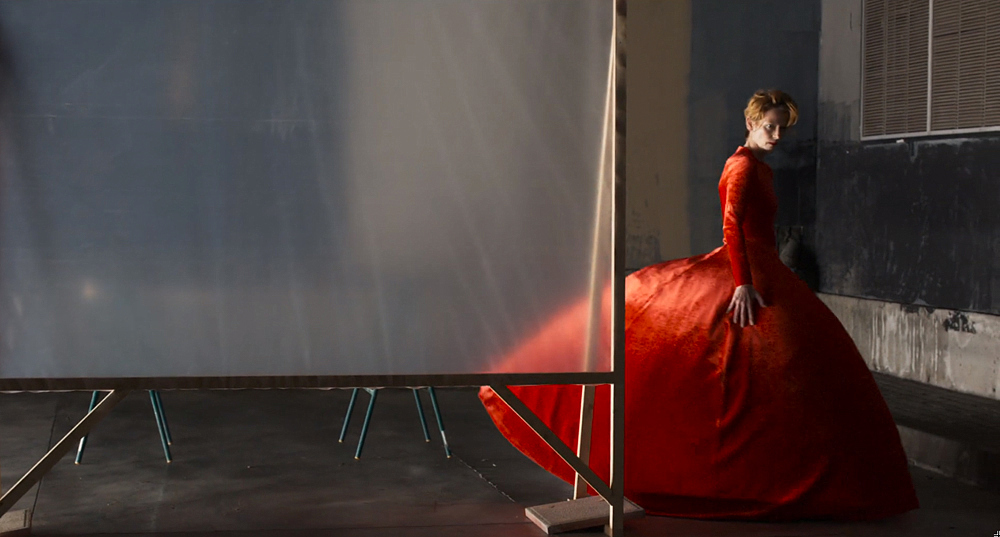
The Human Voice. A thrilling 30-minute English-language film by Pedro Almodovar, loosely adapted from the Jean Cocteau play, and starring a luminous Tilda Swinton as an actress tormented over the break-up with her boyfriend. After an incredibly clever credit sequence, we see Tilda at a hardware store buying an axe. She returns to her apartment (which is an obvious self-contained set in the middle of a cavernous sound stage) and takes the axe to her lover’s suit laid out on her bed. Her dog wanders around, miserable, frantically sniffing for him. Tilda spends a great deal of time talking to her ex on the phone (by way of AirBuds) where she unburdens her soul over the end of their four-year-affair. Swinton is just extraordinary, as is the astounding, color-drenched art direction of the apartment. Almodovar has approached this material before in his films, but this half-hour experiment is a stunning triumph.
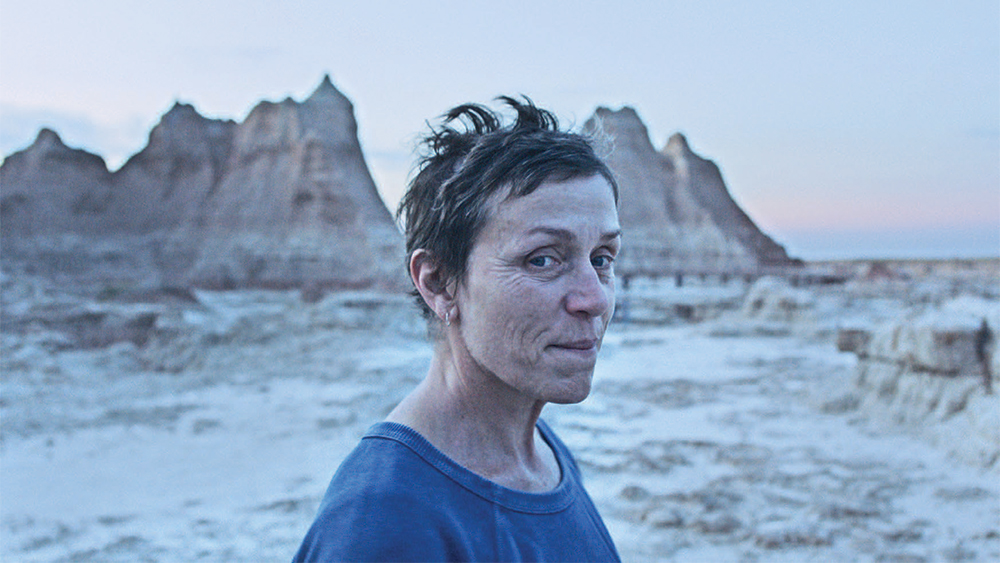
Nomadland. Unbelievably moving film by Chloe Zhao (The Rider) about the disenfranchised older Americans who live their lives on the road. Frances McDormand is extraordinary as Fern, a woman in her 60s, whose husband and hometown have died and who hits the road living in a white van, catching jobs when she can and interacting with all the other rootless souls she meets along the way. There are incredibly poignantly encounters. She meets a woman heading to Alaska who has been told she has months to live. There’s a co-worker at Amazon who encourages Fern to come to a big RV motivational get-together in Arizona. Fern re-unites with her sister when her van breaks down, and her sister talks about what a hole Fern has left in her life by not being around all these years. There’s also a kind man she keeps running into on the highway who takes a shine to her (played beautifully by David Strathairn). What’s so great about McDormand is her strength, humanity and her vulnerability. And there are scenes among the redwoods and desert that make you understand the allure of living free among nature. But there is also the loneliness and regret too. A bittersweet portrait of the new pioneers, whose creed is, “see you down the road.”

